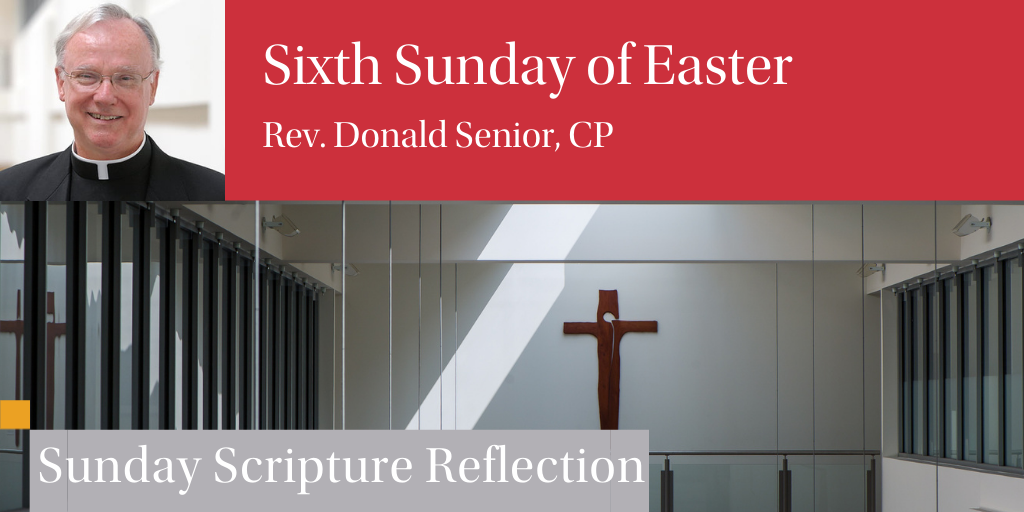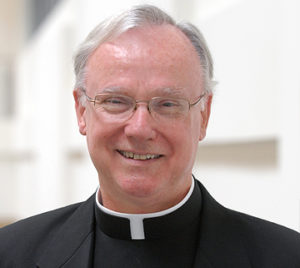

Readings:
Reading I: Acts 15: 1-2, 22-29
Psalm 67:2-3, 5, 6, 8
Reading II: Revelation 21:10-14, 22-23
Gospel: John 14:23-29
“THE DECISION OF US AND THE HOLY SPIRIT”
The first reading for this Sunday from the Acts of the Apostles describes a crucial moment in the life of the early church. Tension had been mounting between those who were promoting the mission to the Gentiles and those Jewish-Christians who feared that the beauty and integrity of their religious heritage would be lost unless strict requirements for Gentile converts were enforced.
To help settle things, the church leaders had convened the first “council” of the church. Participants included leaders from the Jerusalem church such as Peter and James, and staunch supporters of the Gentile mission such as Paul and Barnabas. The heart of the matter was whether, in effect, Gentiles who desired baptism as disciples of Jesus would first have to become Jewish proselytes—with men undergoing circumcision and all Gentiles observing the Jewish Law and Jewish kosher diet.
After vigorous debate, the Jewish Christian leaders such as Peter and James were moved by the testimony that Paul and Barnabas gave about the genuine faith of Gentile converts they had encountered on their missionary journeys. James, the most traditional Jewish-Christian leader, brought peace by recognizing that the influx of Gentiles was, in fact the work of the Spirit: “It is my judgment, therefore, that we ought to stop troubling the Gentiles who turn to God.”
The passage we hear this Sunday is the aftermath. The leaders send a delegation—Paul, Barnabas, Judas, Barabbas, and Silas—with a message of reconciliation and peace to the Gentile Christian communities in Asia Minor. The heart of the message is in our reading today: “It is the decision of the Holy Spirit and of us not to place on you any burden beyond these necessities.” The “necessities” were to observe the Kosher diet and to refrain from “unlawful” marriage.
Thus, the outcome was something of a thoughtful “compromise.” Gentile converts were fully welcomed into the Christian community but with the request that they would observe a custom sacred to Jewish tradition. Later in fact, even this compromise request would fade away and the number of Gentile Christians entering the Christian community throughout the Greco-Roman world would mushroom.
The key to all this is found in the selection from John’s Gospel. Jesus promises his disciples in his farewell address that he will send the “Paraclete” or “Advocate”—the term John uses for the Holy Spirit—who “will teach you everything and remind you of all that I told you.”
In the account from Acts, this is the Spirit who guides the community and enables it to be generous—not imposing on Gentiles conditions sacred to Jews but “burdens’ and not essential for Gentile converts. This decision was reached after vigorous debate and careful listening to the experience of those on the front lines of the Gentile mission.
No doubt the decision of the Council to urge Gentile Christians to observe the Kosher diet was something that Paul himself would not require. But for the sake of peace, he agrees and he is one of the delegation that brings the message of assurance and reconciliation to the Gentile churches.
These are readings our church today needs to take to heart. There are many Catholics troubled by what they consider too many changes in liturgy and in church governance and who want a stronger condemnation of some of the social ills facing us today. Others, however, think the church has not gone far enough to adapt to modern culture and needs to be more, not less, inclusive. Often the language of this debate becomes sharp and condemnatory.
As in the early church, there needs to be vigorous and informed discussion of what are the best policies for the church, but that discussion must be in the spirit of Jesus himself, reflecting an attitude of respect and attentiveness to the experience of those with whom we may not initially agree.
This is precisely the purpose of the process of “synodality” which Pope Francis has invited the worldwide church to engage in. We are to seek wisdom in a manner reflective of the Spirit of Jesus himself who reveals that together we are God’s daughters and sons.
[Republished with permission from The Chicago Catholic, newspaper of the Archdiocese of Chicago.]
President Emeritus, Chancellor, and Professor of New Testament Studies